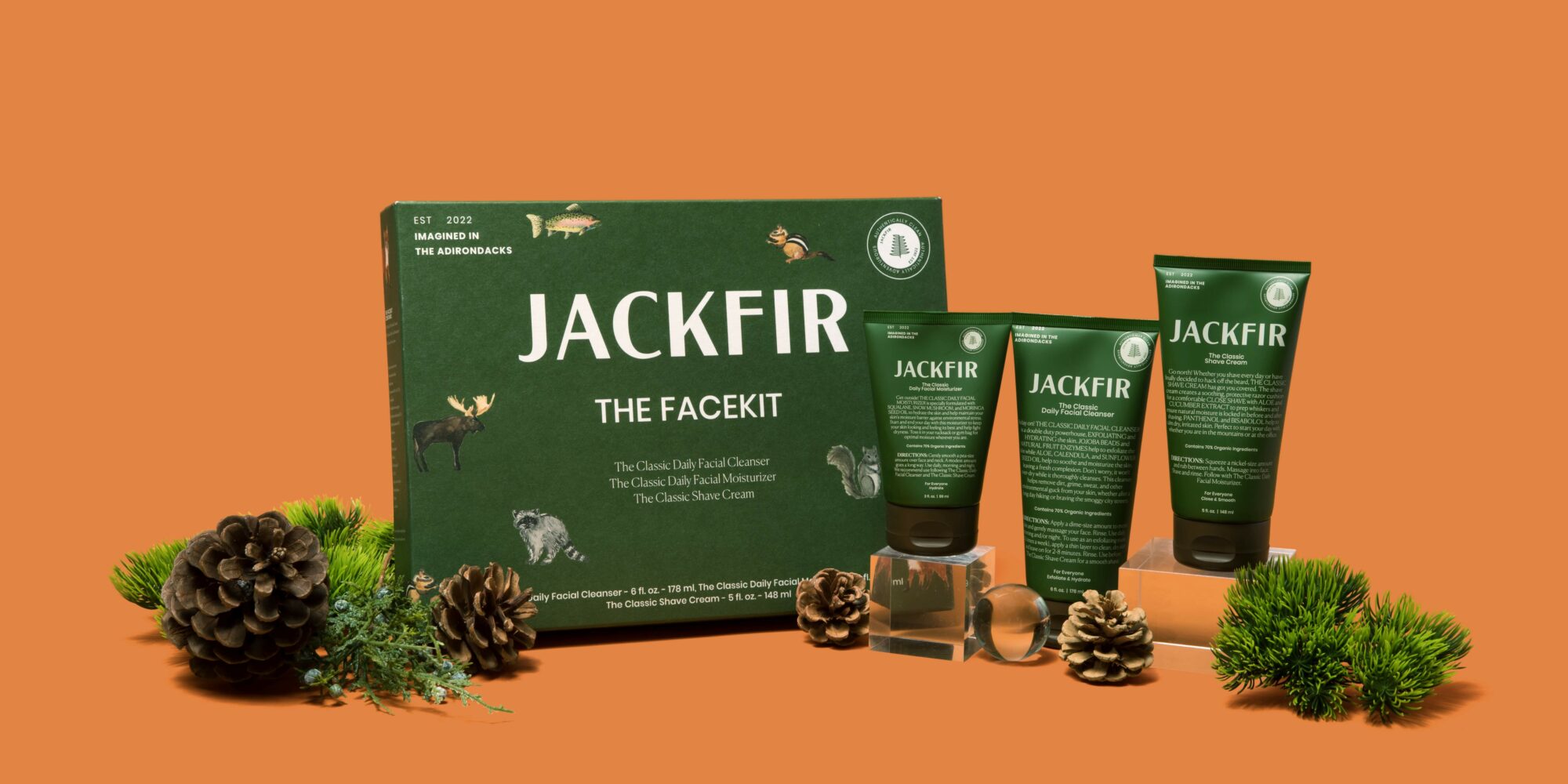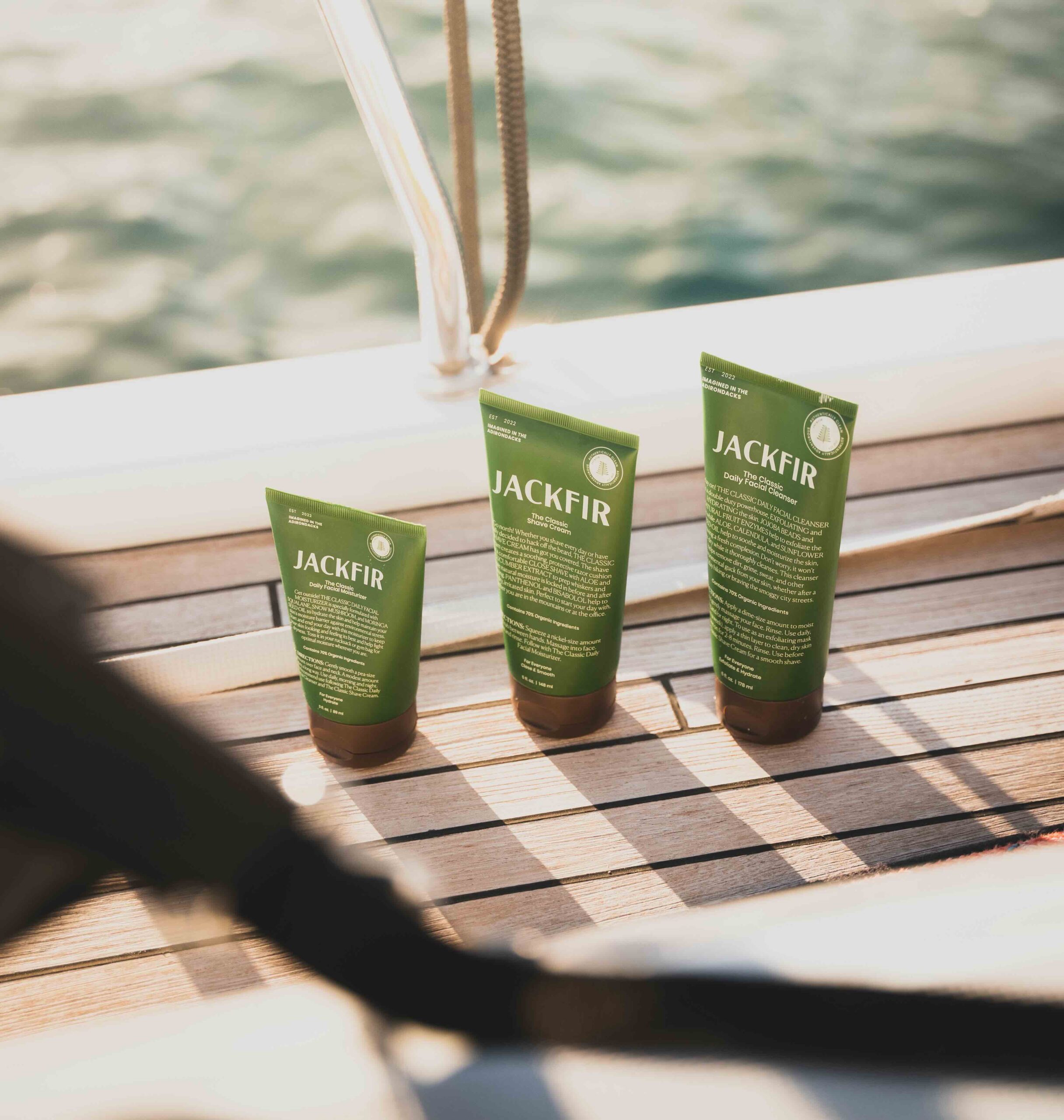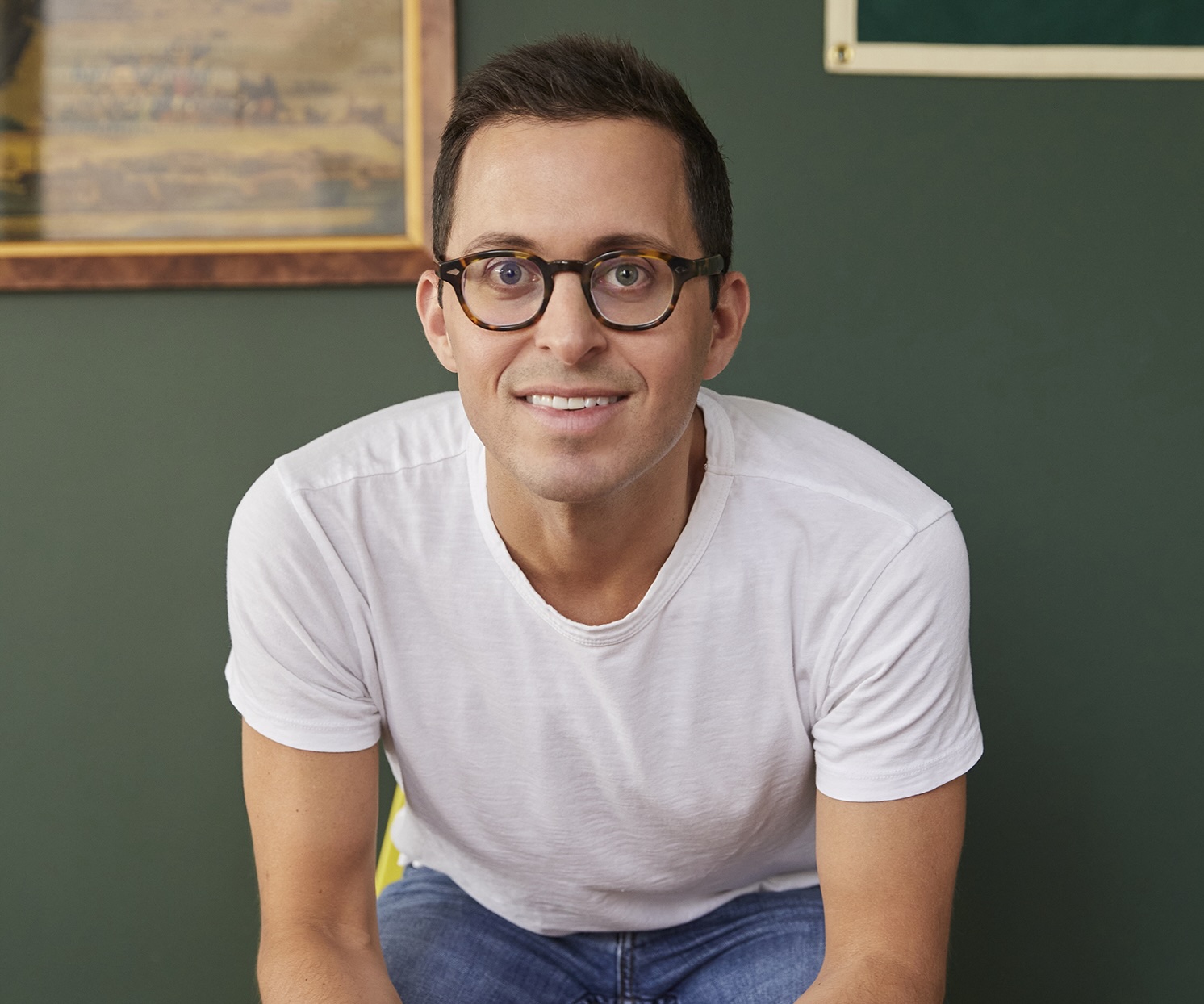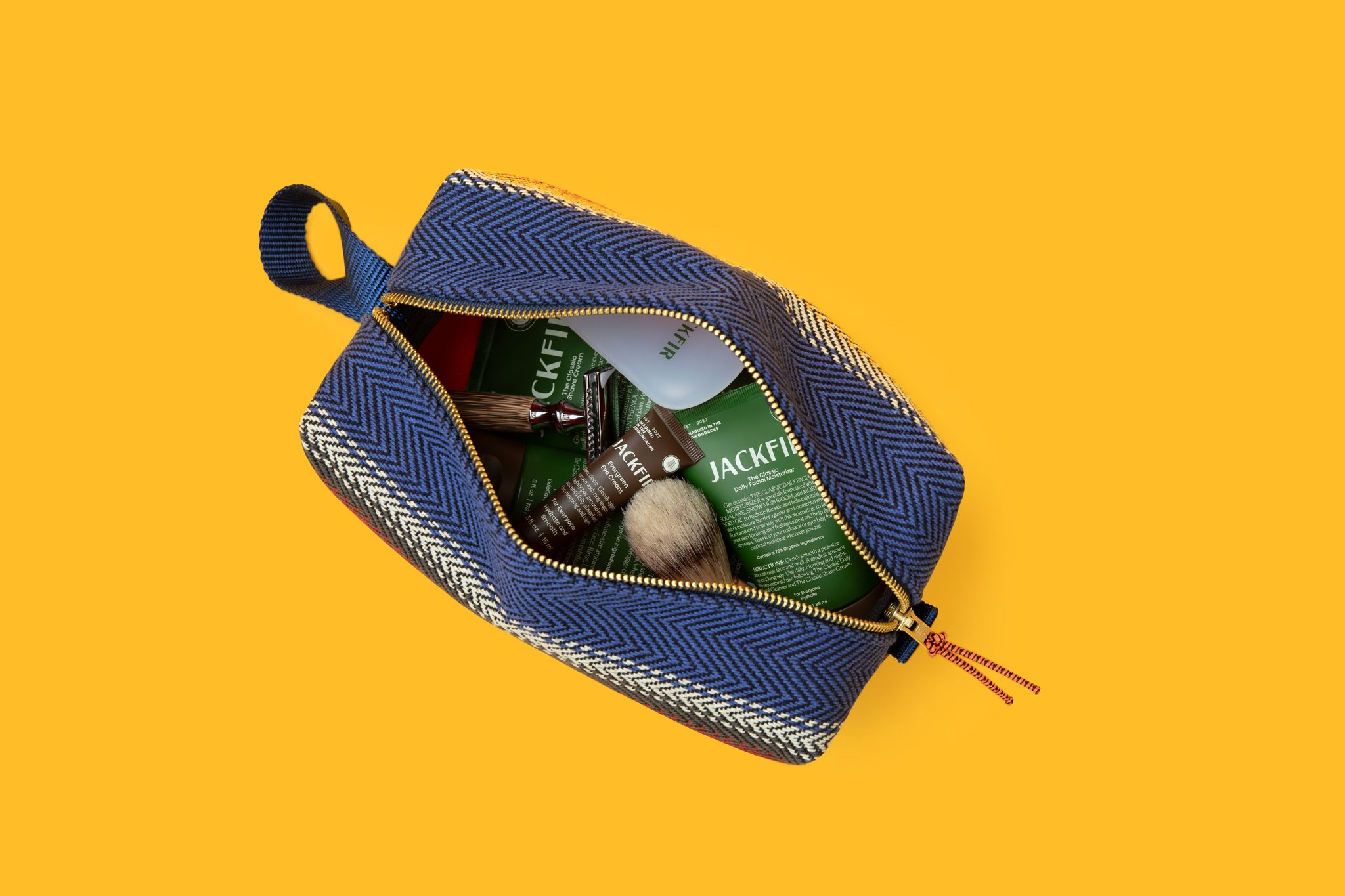
Jackfir Turned Down Erewhon Last Year. Now, It’s In All The Cool Grocer’s Stores.
After concluding that Jackfir wasn’t logistically or financially ready for Erewhon, founder Charlie Razook turned down an offer to launch the men’s skincare brand at the trendy Southern California natural grocer last year. “It killed me,” he admits.
In an age of omnichannel dominance, Razook’s decision to hold off on Erewhon reflects a conundrum many founders face of whether to hop on prime retail placement even if their brands aren’t fully equipped and risk failing to fulfill store obligations or reject it and risk never having it return. For Razook, the possibility of Jackfir stumbling at the chain by entering too early was prohibitive.
“We really wanted to make sure it worked when we got in there,” he says. “It’s not cheap to work with these medium-to-large partners. It requires marketing to their base when you are there, and we wanted to be able to support that.”
Fortunately for Razook, Jackfir’s Erewhon story didn’t end last year. The coveted chain’s offer showed interest in Jackfir, and the brand might have another chance at shelf placement once it was ready. It set out to prepare for seizing upon that chance. It secured a third-party logistics provider and shored up profits by lowering customer acquisition costs through an Amazon push. Jackfir is slated to be profitable in November and December this year and throughout 2025.

In the summer 2024, the brand reapplied to launch at Erewhon, and Erewhon gave it the green light again. This time, Jackfir responded in kind. Three of its products—$36 The Classic Shave Cream, $46 The Classic Daily Facial Moisturizer and $40 The Classic Daily Facial Cleanser—have landed across Erewhon’s 10 locations.
“When you are thinking of trusted ingredients and quality, it’s no brainer that you would want to be at Erewhon if you’re a clean brand,” says Razook. “Also, California is our second-biggest market, and we don’t have a ton of physical distribution now, so it was super exciting to be in 10 stores there.” New York is New York-based Jackfir’s top market.
Jackfir has a plan of attack to support its business at Erewhon. It’s hired an agency in Los Angeles to seed products to influencers and let them know they can be bought at Erewhon, where it’s doing staff trainings and in-store demonstrations. In addition, the brand has signed on a distributor recommended by Erewhon. Razook says it’s one of the smaller distributors that feeds Erewhon and discloses the “landed margin we give them is 30%.”
“We really wanted to make sure it worked when we got in there.”
This year, Jackfir expects to hit $400,000 in sales. Next year, it predicts that number will rise to $800,000 to $1 million. Razook characterizes the brand’s presence at Erewhon as “money-making” this year, but notes, while the margins at retail are less than direct-to-consumer or Amazon margins, the reasons for retail partnerships extend beyond them.
He says, “You have to think about it like you are not going to make a ton of money for a little bit, then once you’ve locked in your customer, it could be a very good client, not only for revenue-generating, but for marketing.”
Jackfir has taken a highly intentional approach to distribution. The brand started in August 2022, and it focused on DTC and general stores, apothecaries and clean beauty shops in its first year on the market. In its second year, it focused on larger retailers, barbershops and Amazon, a crucial hub for men’s personal care online. Today, it’s in around 30 retailers such as Beauty Heroes, The Indie Shelf, Goop and Grove Collaborative, and barbershop chain Fellow Barber’s 11 outposts.

Around 20% of Jackfir’s sales are from wholesale, and the rest are roughly split between DTC and Amazon, although Amazon is charging ahead. About a quarter of its advertising budget goes to Google, a quarter goes to Meta and the remainder goes to Amazon. Jackfir hasn’t tapped retail brokers or external salespeople. Its retail outreach has been handled by Razook and two employees.
“We are constantly keeping an eye on our CAC. It’s going down,” says Razook. “It was much more expensive when we were digging into the older channels like Google and Meta. Amazon has cut it in half, and it’s super efficient.”
Jackfir is highly intentional about its product assortment, too. It has four main products and anticipates widening its assortment by a single product a year. Along with the three it has at Erewhon, there’s $48 The Evergreen Eye Cream. The Classic Shave Cream is the bestseller. A body care product is on deck for 2025, and a sunscreen will follow it.
“A lot of people want it to grow at the pace of a women’s brand, and men’s will never be women’s.”
Razook wasn’t born with a dream to be a skincare entrepreneur. His dream was to be in the music industry—and he realized that dream by becoming an A&R and marketing coordinator at Atlantic Records. Ultimately, the dream soured. His mental health suffered from an office environment he describes as “toxic.” He moved on from the music industry to the fashion industry and spent four years in e-commerce and marketing at swimwear label Solid & Striped.
To learn about luxury goods, Razook enrolled in an MBA program at Bocconi University in Milan. Nine months into the program and two days away from beginning an internship at Gucci, he was diagnosed with leukemia. He endured three and a half years of treatment for the disease and is currently in remission.
During his treatment, Razook pored over the products he was using and swapped them out if they had ingredients he was worried about. For example, he steered clear of products with synthetic fragrances since brands don’t have to reveal the ingredients in them due to trade secret protection in the United States. In the process, he noticed that clean skincare brands were generally oriented toward female audiences. He created Jackfir to provide a clean option for men.

The brand has raised $1.375 million from private investors, including $1.1 million to get underway, according to Razook. It has eight certifications listed on its website that verify it’s clean, organic, vegan, gluten-free and cruelty-free. Clinical skincare is surpassing clean skincare in the beauty industry broadly, but Razook believes men are still catching up to it. Jackfir’s customers are half men and half women, who are buying products for the men in their lives, and they’re principally 25 to 45 years old.
Men’s skincare projections portend category growth. Precedence Research, for example, estimates it will register a compound annual growth rate of 6.4% from 2024 to 2033. Grand View Research and Future Market Insights peg the growth rate in the 9% range. Still, brands and retailers in the category are candid that it can be a tougher nut to crack than the projections seem to indicate.
“A lot of people want it to grow at the pace of a women’s brand, and men’s will never be women’s. There will never be a billion-dollar men’s skincare brand,” says Razook. “Honestly, in the long term, I’m not even sure what model is best, maybe it’s keeping it private. But if you are committed to slower growth, the opportunities are endless. We are growing with the market. Even though our customer is more of a millennial, the biggest opportunity is going to be the younger kids who really do care.”
Glancing forward, Jackfir’s goal is to expand retail distribution at medium-sized retailers, clean beauty retailers among them, and double down on Amazon. Five years into the future, Razook envisions the brand progressing to $10 million in sales and “taking ownership of clean men’s skincare.”





Leave a Reply
You must be logged in to post a comment.